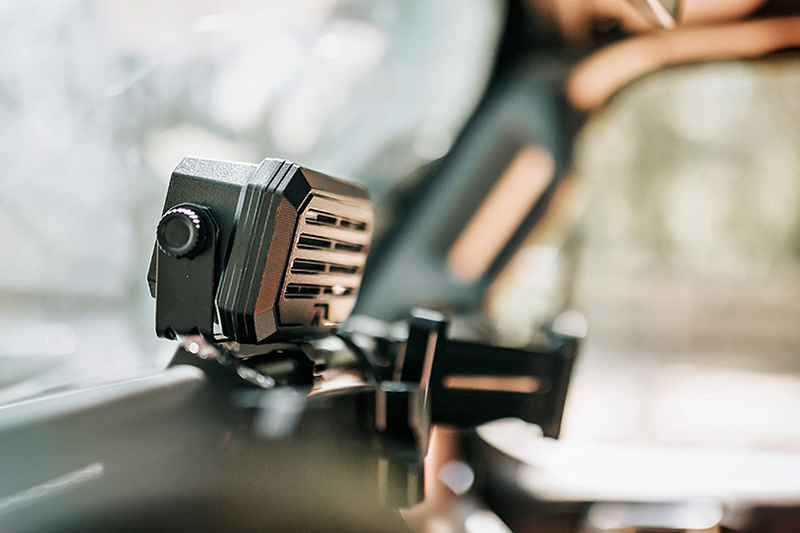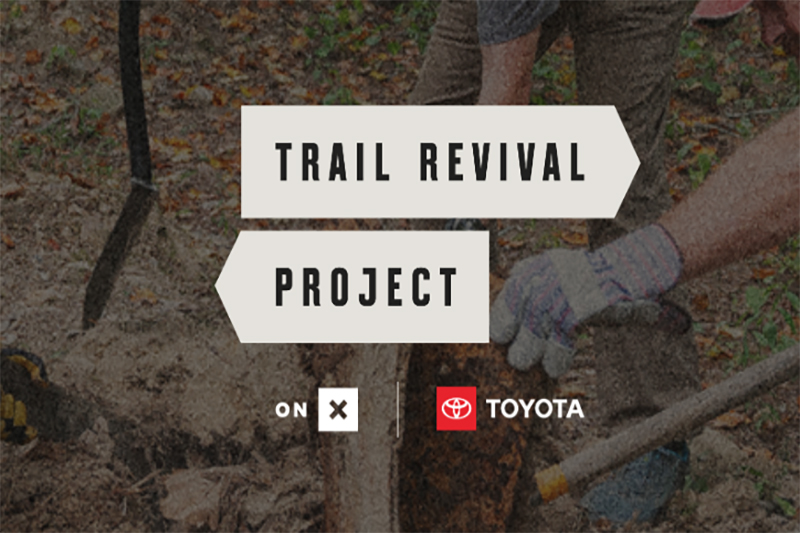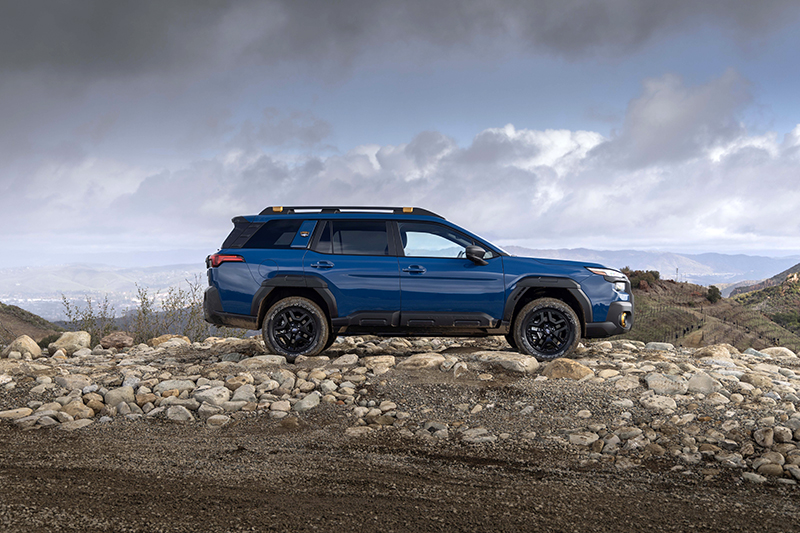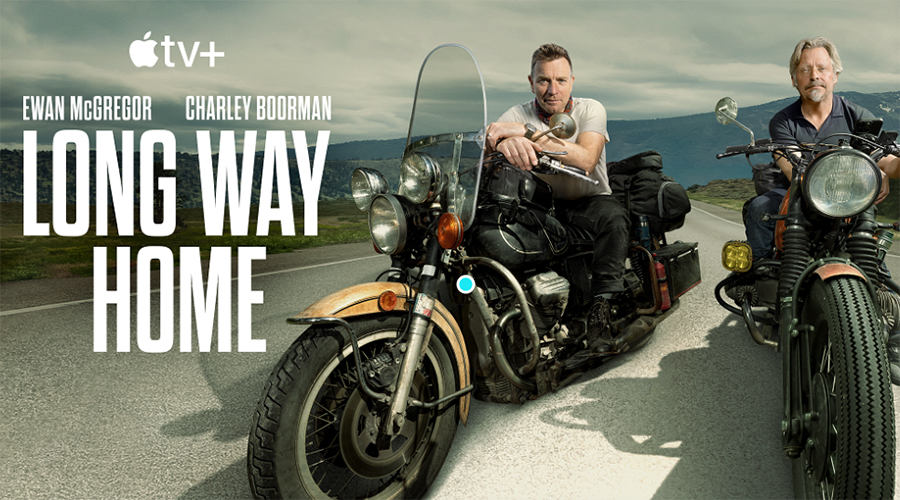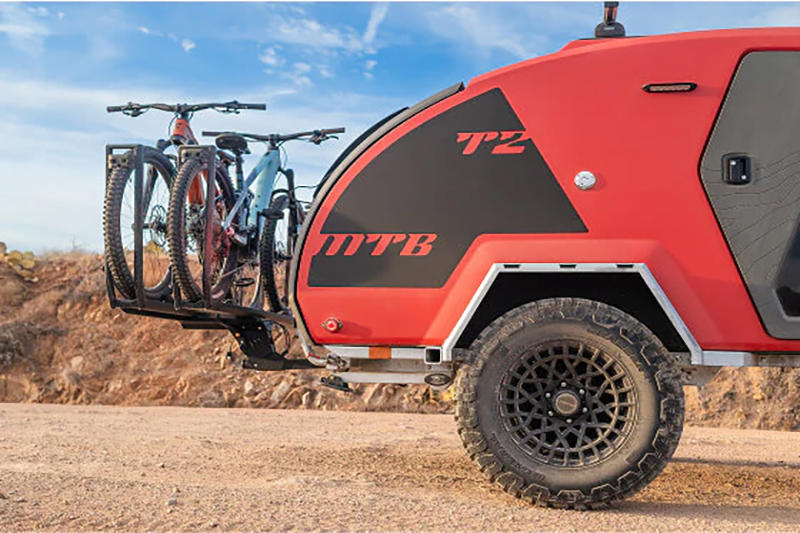Basic tips to get started on your next, or first, backpacking adventure
A huge step into the backpacking world is often just that, the first step. The decision to head into nature and spend the night in the depths of our wilderness areas. Away from roads and cars and nothing but the birds chirping and the sound of our breath walking up trail. The second major step is where to get started.
What type of training should I begin with? What kind of stretches are the most important? What should I be eating? What gear should I bring? What pack should I buy?
I am going to run you through some basics for preparing for a backpacking trip. And if I were to tell you that the physical training and gear bought were nothing compared to the mental decision of doing it, would you believe me?
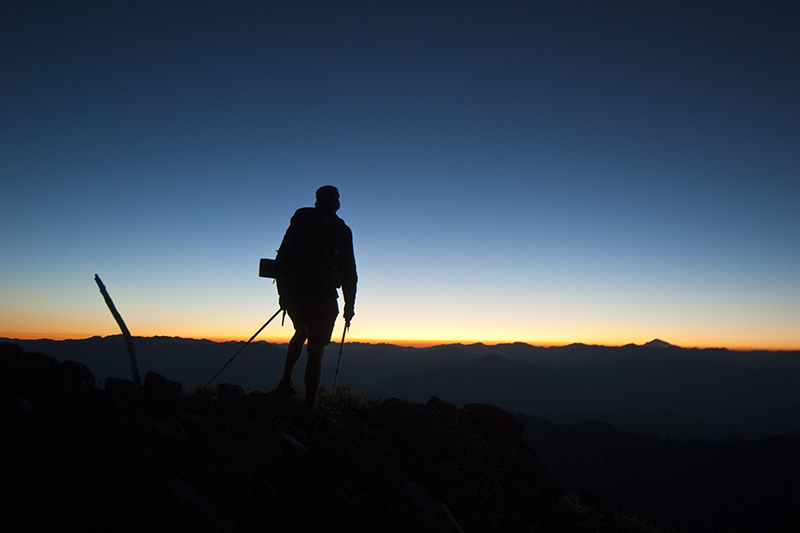
Mental
The decision to delve into the depths of nature and camp out is often the only real driving force needed to go and backpack. Pioneers and frontiersman thrived in the woods of the west with nothing but a horse and often just a knife. So, in essence, a backpacking trip with a pack, tent, sleeping bag and pad are like checking into a luxury resort for the night compared to what they lived with. Use the desire to want to go to that alpine lake, that forest grove, that desert river or whichever location you researched away from parking lots and designated campgrounds and fuel that to get you there. Because without that, all the gear in the world is irrelevant.
Physical
Now don’t get me wrong, training is something I do believe should be considered and stretching can save you from injury and make your hike more comfortable. But don’t stress. Begin with some hiking around the local woods near home or even around the neighborhood. This will create an almost second wind for your brain preparing you for the endeavor up ahead. You do not need to be in great shape to do a backpacking trip, but some pre-hike exercise never hurt anything.
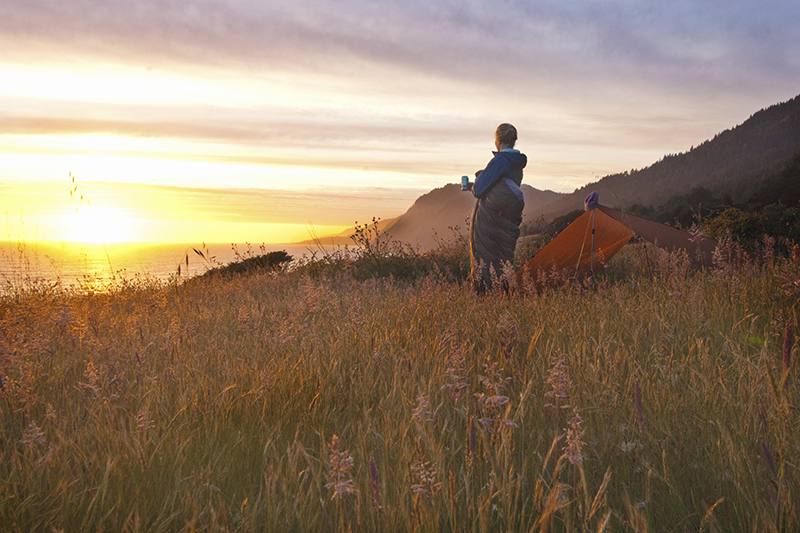
Shoes
I did get myself into a little trouble with blisters in the beginning by not testing out a set of trail shoes. Trail shoes, not hiking boots. Hiking boots seem to do more damage than good, so leave them at home. You don’t need ankle support despite what people say. Blisters are going to happen whether you like it or not, so might as well enjoy the shoes you are in when you get some.
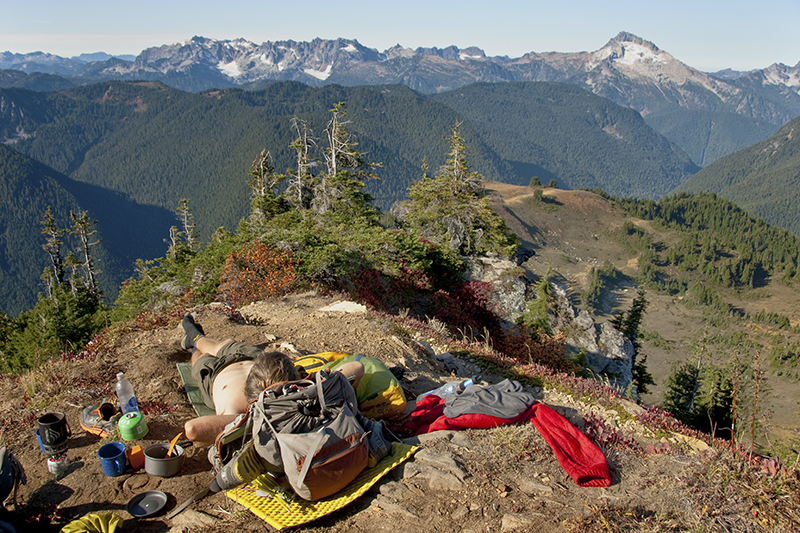
Food
Enjoy all the comfort food you can before your hike. Because after you start, the only food you’ll have on a daily basis is what you carry with you. That being said, you do not need to eat instant mashed potatoes and top ramen everyday. Cliff bars and all the other bars are great, but you don’t need those either. You can pack out whatever you wish. I’ve packed out fried chicken, cheese, pizza, beer, fruit, you name it. The point is you can bring whatever you wish on trail, just remember that you have to carry it. So after that is realized, pack your heart out.
Backpack
Buying a backpack could arguably be the most important purchase, not the tent or sleeping bag. Most of your time will be spent with this thing strapped to your back carrying all gear mentioned. Should this thing be uncomfortable, you wont be enjoying your time in the woods. Go to a local store and try a bunch on, make sure your back is measured and adjusted to your comfort and research size for what you intend to carry. Some areas need more space for things like bear cans or extra water, where some you could get away with a very small pack. Research is paramount in this endeavor.
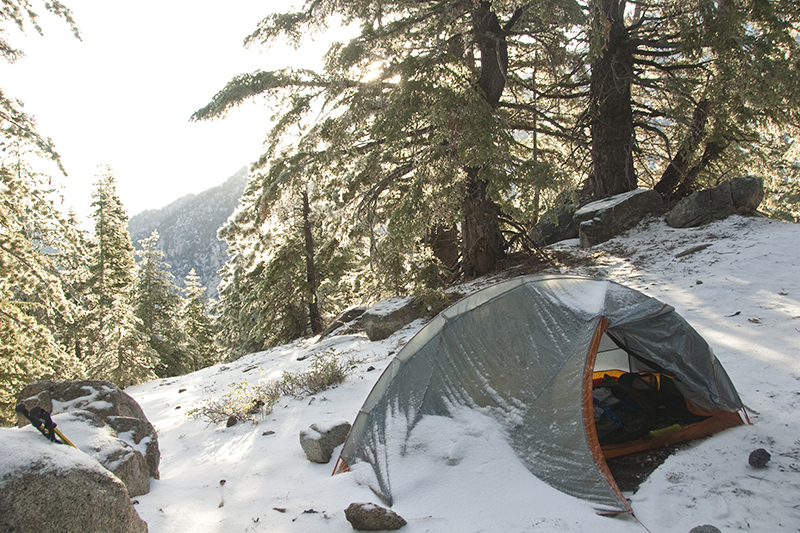
Tent
A tent could be argued as an optional purchase. Many love the idea of camping out under the stars in the backcountry. It is amazing, but in the mountains or on the coast, questionable weather can sneak in while you’re sleeping. So a good tent is always a reasonable thing to purchase with many being decently priced and not too heavy to carry.
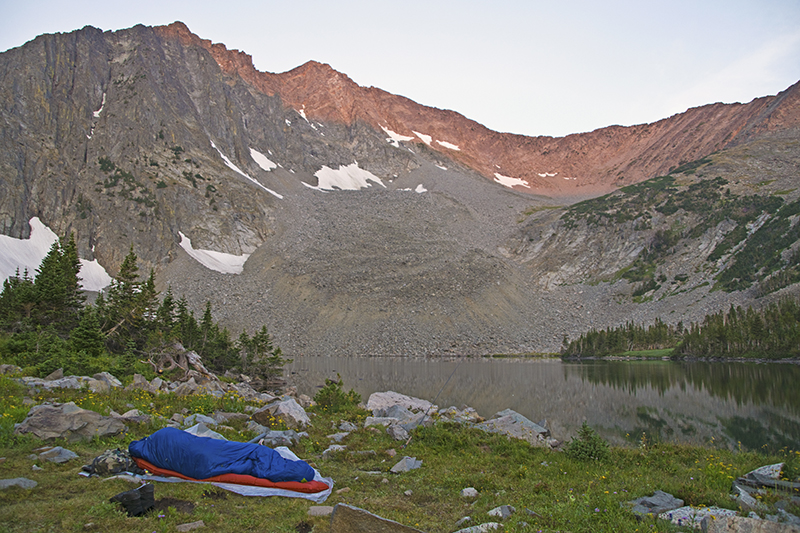
Sleeping Bag and Sleeping Pad
When it comes to sleeping comfort, many dive into, head first, the joys of a good down sleeping bag and an air mattress. Air mattresses have come a long way and many are durable and packable. Sadly, it still makes them vulnerable so be wary when purchasing one, as a sudden pop in the middle of the night on a backpacking trip means you are sleeping on the cold and hard ground.
A good and comfortable sleeping bag though, helps to relieve the stress of a long days hike and give you something to look forward to crawling into for sleep that night or struggle to get out of for morning coffee. As with all, research what you want for where you are going and make the most out of your purchase.
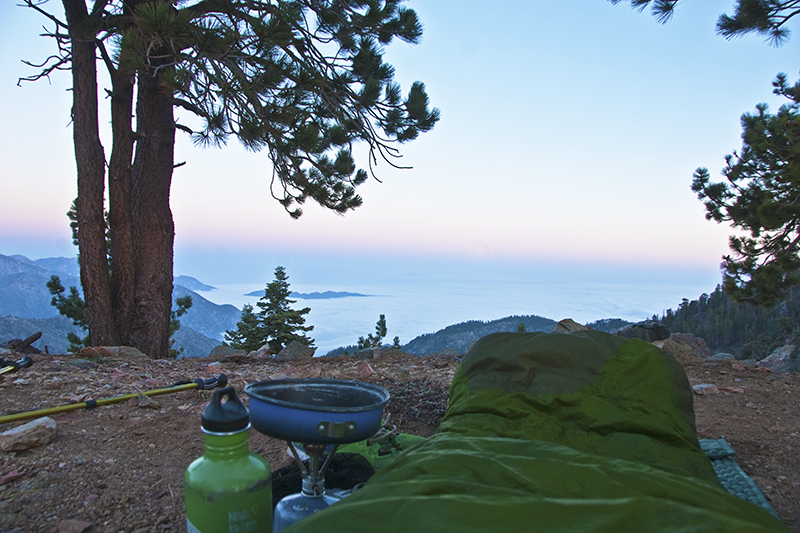
Stove
There are many good and reliable portable backpacking stoves that won’t break the bank yet crank out all the water boiling and cooking needs you desire. You’d be blown away at what some of these stoves could do. Some creativity and desire of what to pack can turn your lightweight backpacking trip into the next episode of iron chef.

Water Filter
Some argue the necessity of a water filter, however I feel like those who question its value have never been sick on trail. I have, and it is not fun. Getting sick in the woods is the last thing you want to be dealing with, and most sicknesses from trail originate from untreated water. Whether it is a murky mud pit or a crustal clear creek pouring out from a melting glacier, you should filter your water. With many out there on the market, do your research, once again, and make the decision on what works best for your trip.
The point of backpacking, is to get away from the technologies, stresses, and stimuli of life and find that little corner of nature with a shot of exercise to enhance the experience. Once you start backpacking, one of two things will happen: you will never do it again, or it will be a small addiction, researching the next destination. With most destinations on this planet being inaccessible from roads, the lacing of the shoes and shouldered backpacks are the tools needed to get there.
OutdoorX4 Magazine – Promoting responsible vehicle-based adventure travel and outdoors adventure








